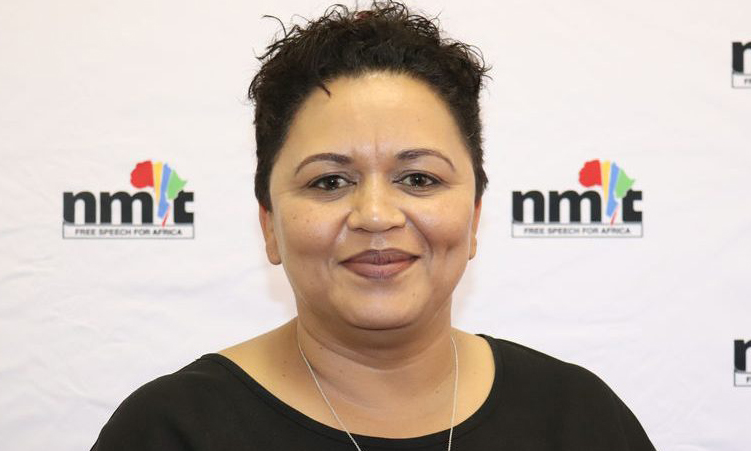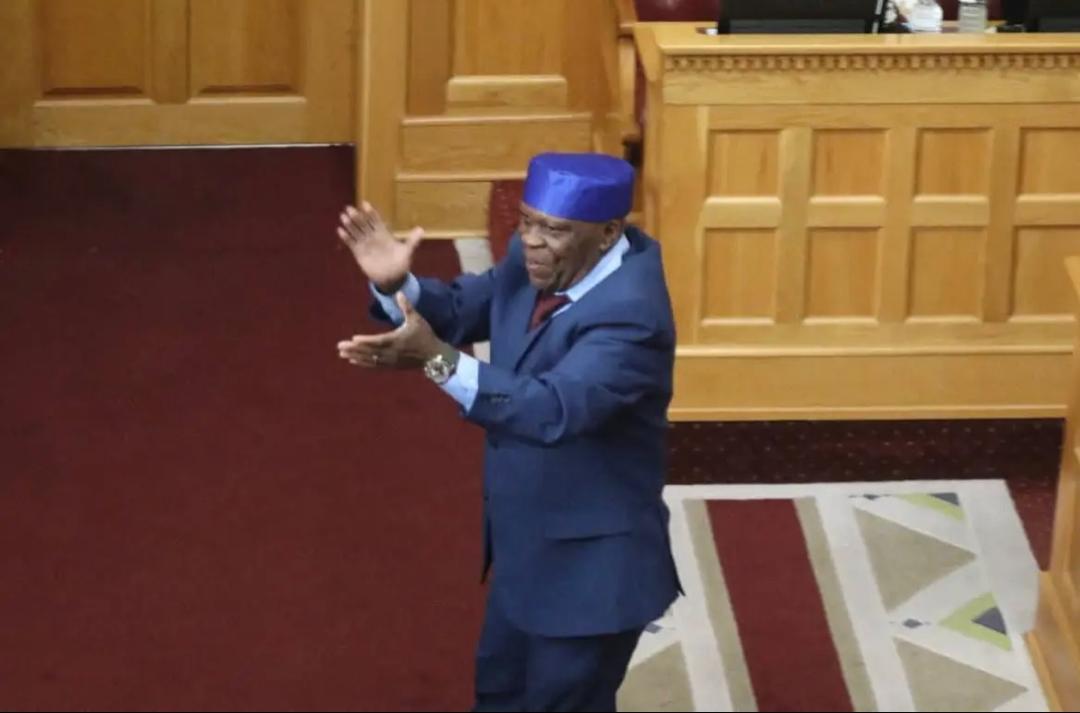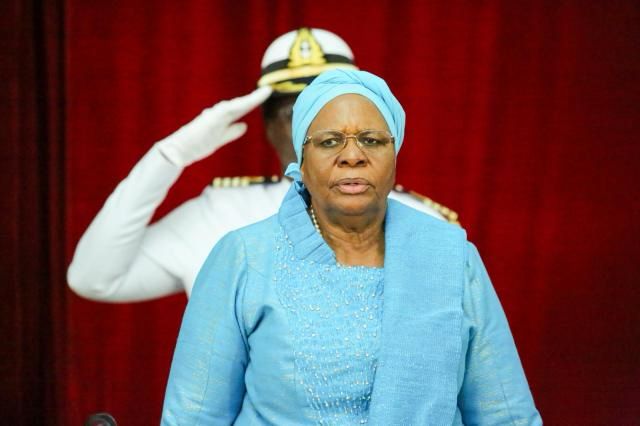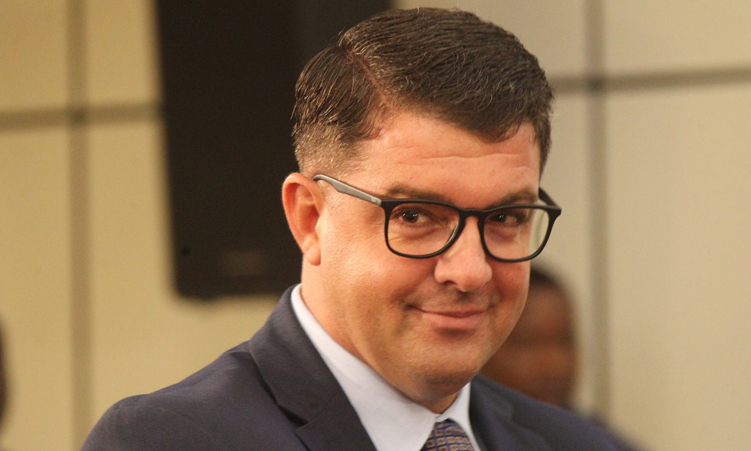Political interference is threatening the independence of Namibia’s media, a local research firm has said.
Tannan Groenewald, head of data and analytics at Cirrus, says Namibia has lost its status as the country with the freest press in Africa.
According to data provided by the Reporters Without Borders Press Freedom Index, Namibia’s global scores have decreased from 80.91 in 2023 to 74.16 in 2024.
Political indicators show Namibia being ranked 29th in 2023, compared to 45th in 2024, while economic indicators show Namibia being ranked 21st in 2023, compared to 29th this year.
Namibia’s legislative indicators were 29 in 2023 and 35 in 2024, while in terms of social indicators, Namibia ranked 18th in 2023 and 43rd this year, and security indicators show a ranking of 22nd in 2023 and 34th in 2024.
Groenewald says Namibia dropped in global rankings in terms of political reporting.

“Political: Respect for media autonomy vis-à-vis political pressure from the state and independence in reporting on political news saw Namibia drop from 29th position in 2023 to 45th worldwide in 2024. “Economic: Corruption and favouritism in the allocation of state subsidies and other economic constraints linked to governmental policies saw the country drop from 21st to 29th,” says Groenewald.
He notes that Namibia dropped from 29th to 35th position in terms of the freedom of journalists and the media to work without censorship, judicial sanctions or excessive restrictions on freedom of expression.
“Sociocultural: Pressure on journalists to not question certain bastions of power or influence or not cover issues challenging the status quo, and attacks on the press based on issues such as gender, ethnicity, class and religion saw Namibia drop from 18th to 43rd.
“Safety: [Regarding] the ability to identify, gather and disseminate news and information without risk of violence, intimidation, threats or job loss, Namibia dropped from 22nd to 34th,” he adds.
CLEAR METHODOLOGY
Speaking to The Namibian yesterday, Namibia University of Science and Technology lecturer Phillip Santos said there is a need to examine the methodology used to arrive at the research conclusions.
“Methodology must be clear on what methods were used in coming up with this ranking. There is a need to examine the methodology used to arrive at the conclusion of these rankings,” he said.
“This ranking, which is lowered, must be assessed on what indicators are they looking at, or are there differences in terms of what they are looking at.
“We need to look at what is being analysed or considered and the basis on which the decision is made. Methodically, it is very central and it is important for the ranking. Sometimes you need to look at who has scored high,” he said.

The research data comes as the Namibian Broadcasting Corporation (NBC) was put under scrutiny and its independence questioned recently over a decision to suspend senior editor Anna Nicodemus.
Nicodemus was in the firing line after an interview with the South African television news channel, Newzroom Afrika, in which she claimed president-elect Netumbo Nandi-Ndaitwah fainted twice during the campaign period.
Her assertions have, however, been proven wrong by Namibia Fact Check.
Political analyst Ndumba Kamwanyah earlier said Nicodemus’ suspension raises concerns about media freedom.
“It is troubling if a journalist faces disciplinary action for expressing views or providing information in the public interest.
“Such actions can discourage critical reporting and weaken press freedom and freedom of expression,” he said.
CHALLENGES
NMT Media Foundation executive director Zoé Titus says the decline in Namibia’s press freedom rankings suggest increasing challenges to media freedom, including potential political interference and pressures that hinder journalists’ ability to operate independently.
“The potential impact of these include self-censorship, reduced investigative reporting and a less informed public, ultimately weakening democratic processes,” she says.
According to Titus, data provided by the Reporters Without Borders Press Freedom Index indicates a concerning trend, particularly regarding political interference and pressure on journalists.
Titus says how Namibia will regain top status as the freest press country in Africa will depend on the new administration under the incoming president.
She said she hopes the new administration “shares the same commitment to press freedom, freedom of expression and access to information”.
“But, it is important to note that there appears to be genuine interest by the public in matters related to press freedom and their perceptions of media independence.
“I think it must be celebrated that Namibians take the issue of press freedom so seriously.
It speaks to people’s personal interest in protecting their right to freedom of expression, which is closely tied to media freedom of expression and access to information,” she says.

WHAT CAN BE DONE?
Titus believes much still needs to be done in Namibia to strengthen public institutions that protect and support media freedom.
“Our access to information law should be operational soon, but we are still awaiting the operationalisation of the Whistleblower Protection Act.”
In addition, Titus says Namibia must enact cybersecurity and data privacy laws that are human-rights centred and designed to protect individual freedoms, ensure accountability and promote transparency while promoting innovation and economic growth.
“Get citizens more involved in participating in policy reform. Our Communications Act is due for an overhaul.
That is an issue of national interest, and strengthening public institutions that are designed to protect these fundamental freedoms and support the work of the media,” she adds.
Stay informed with The Namibian – your source for credible journalism. Get in-depth reporting and opinions for
only N$85 a month. Invest in journalism, invest in democracy –
Subscribe Now!










